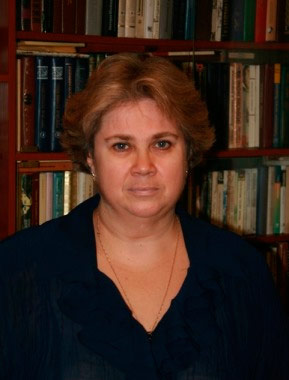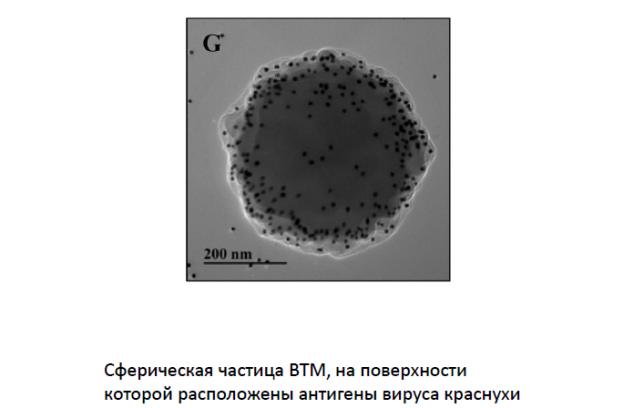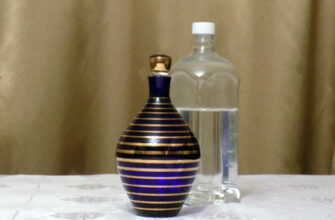According to the press service of the Moscow state University, a faculty of biology of the university has successfully completed the preclinical trials of a new safe vaccine against rubella based on a modified plant virus.
Rubella – an acute viral disease transmitted by airborne droplets. Typical symptoms, rashes, General weakness, malaise, increased body temperature to 38-39 °C. Typically, the duration of the disease ranges from 11 to 24 days. Possible complications – arthritis (more often in adults) and krasochnyi encephalitis (rare).козы, верблюды, свиньи).
An idea of the new vaccine belongs to the department of virology of the Moscow state University. A current vaccine that is used today is created on a basis of alive attenuated virions (weakened viral particles), and is not recommended for pregnant women and women of reproductive age. A reversion to the pathogen is in such vaccine, and people can get sick after the vaccination. If a grown man or a child gets sich, it is nothing much. But if a woman waiting for the child takes sick, the consequences may have staggering implications for the fetus.
In addition to contraindications of live vaccines for pregnant women, there is a worldwide trend set by the World Health Organization. The use of vaccines based on live virions is expensive and dangerous. Therefore, a creation of recombinant vaccines (obtained by genetic modofication with the use of biotechnological approaches) is an extremely important task for the development of the modern medicine.
New researches of Russian scientists

The scientists from MSU used a plant virus to simulate a particle of a rubella virus that would be safe for use. A co-author of the vaccine, Professor in the Department of Virology of the biological faculty of MSU named after M. V. Lomonosov, Olga Karpova told to “E Vesti”: “We took a virus of plants and modified it in a certain way, turning the structure into a small ball. On the surface of this ball, we placed the proteins of the rubella virus antigens – the proteins that human immunity produces”.
Apart from the rubella vaccine, the Russian virologists also work on a vaccine against rotavirus (approx. edit: rotavirus infection is an acute viral disease characterized with general intoxication, lesions of the gastrointestinal tract and dehydration).
Today, the rotavirus infection today is treated with attenuated virus, and this vaccine can have severe consequences. After vaccination, children often have an intussusception (approx. ed. – type of bowel obstruction). The situation is that, in the developing countries, 50% of children, who receives a complication of intussusception, die. Therefore, the Russian scientists are developing a safe vaccine against this disease. Olga Karpova also shared fresh news: “We have also begun to develop a vaccine against anthrax”.
Anthrax is a dangerous acute viral disease, whose source carrier is pets (cattle, sheep, goats, camels, pigs). There are skin, lung and intestinal forms of the disease, of which a cutaneous anthrax is the most widespread. The cutaneous form of the disease is treatable with antibiotics, when timely applied. The lung, intestinal and septic forms are the most dangerous to humans and have a poor prognosis.
Significance and prospects
According to professor Karpova, the use of plant viruses has a lot of prospects. For instance, adding of modified plant viruses to the existing vaccines can enhance the immune response of a vaccinated, which will reduce a dose needed for the vaccine. The new developments of the Department of Virology can also be used as safe and non-toxic immune stimulants. Olga Karpova noted: “Most immune stimulants used today are very toxic”.
The new Russian vaccine is unique. Today, there are no other ways of controlling rudella in the world except a vaccine based on a weakened virus. The fact is that molecular virology was funded very well in the Soviet Union, since it was necessary to agriculture. On this basis, a unique school of molecular virology of plant viruses appeared. Such programs have not been developed in the world for a long time, and only now such laboratories appear abroad. “Our main competitor is the laboratory of a professor Leclerc in Canada. Also, there are a couple of companies that invest in these developments”, – said Olga Karpova.
The Ministry of industry and trade was funding the new developments of the Russian scientists. However, now it has stopped due to lack of funds. A second new development, a vaccine against rotavirus, has been approved for pre-clinical trials, but there is no funding for this project as well. The largest specialist in rubella and a developer of the first vaccine against it, Professor Plotkin, and a number of other organizations show interest to the new vaccine.
A situation when it turns out that, given the lack of funding, our scientists are still the leaders in such field as virology, is very impressive. Let’s hope that the new vaccine of the scientists from the Moscow state University will receive funds for clinical trials and the new researches will be implemented in new projects.
Sources: Encyclopedia of Medicine, Encyclopedia of Medicine, Encyclopedia of Medicine, MSU




